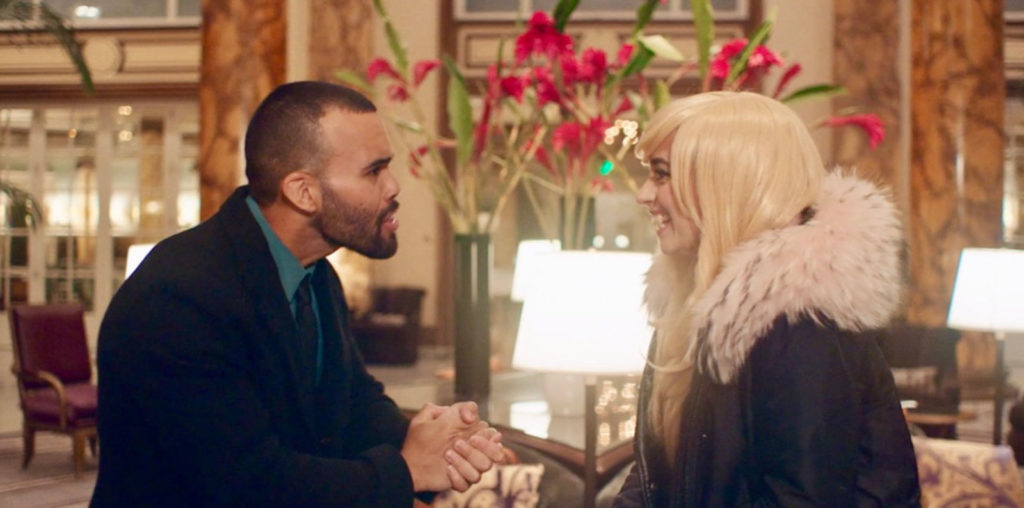
Daniel Ruczko, the writer, director and star of the interesting, yet hopelessly dreary, short film “Bipolar- A Narration of Manic Depression” is a very talented filmmaker and a whip-smart marketing guy. While I must admit I found his film too slow and painful to enjoy, I was intrigued by the only character featured onscreen, a best-selling author named Andrew Gony, who is deep in the throes of a depressive episode.
Ruczko’s film is done entirely in split screen with one side showing what the manic-depressive Gony might be doing if he was in his high, manic state while on the other we see what he’s actually doing in his depressive state. It’s a very smart and unique way to show the rift that occurs in those suffering from this evil illness. But in the end “Bipolar” is so excruciatingly bleak I started to wonder what the point of this film is, which in hindsight ties in pretty brilliantly to the topic being covered.
As mentioned, throughout the entire film we see the two sides of Gony going about their day. His first book, “The Void,” is a bestseller but that’s no cure for a sickness that can only ever be managed. On the left side of the screen we see the manic writer up before 9:00 a.m. and on a jog. From there he comes home and settles in for a nice, productive day of writing. On the right side of the screen, we see the depressive Gony who, although unable to sleep for more than 2-3 hours at a clip, spends all day in bed. There’s a voiceover throughout the film that explains in detail the pain and frustration Gony feels and it’s sad to watch and hear. But rather than a glimmer of light, “Bipolar” decides to take the lead character further down into a dark spiral.
I say Ruczko is a smart marketer because Gony is a fine and believable creation. I spent a good 20 minutes trying to find out where I could get Gony’s evidently popular book, “The Void.” I also wanted to know what happened to him as this film is a very in-depth view of manic depression. I fell short on both of those searches and for good reason.
However smart Ruczko is about marketing, he shows he has an even better eye for direction. “Bipolar” looks fantastic and the filmmaker uses simple touches and mise en scene to get points across. But in the end, “Biploar” is like a bad emo trip or akin to listening to Morrisey on repeat for days on end. It’s brutally depressing which, again, is likely the point. But I’ve never been one who feels real empathy or camaraderie with the suicidal or depressed so “Bipolar” lost me about halfway through.
This film was submitted for review through our Submission for Review system. If you have a film you’d like us to see, and we aren’t already looking into it on our own, you too can utilize this service.
